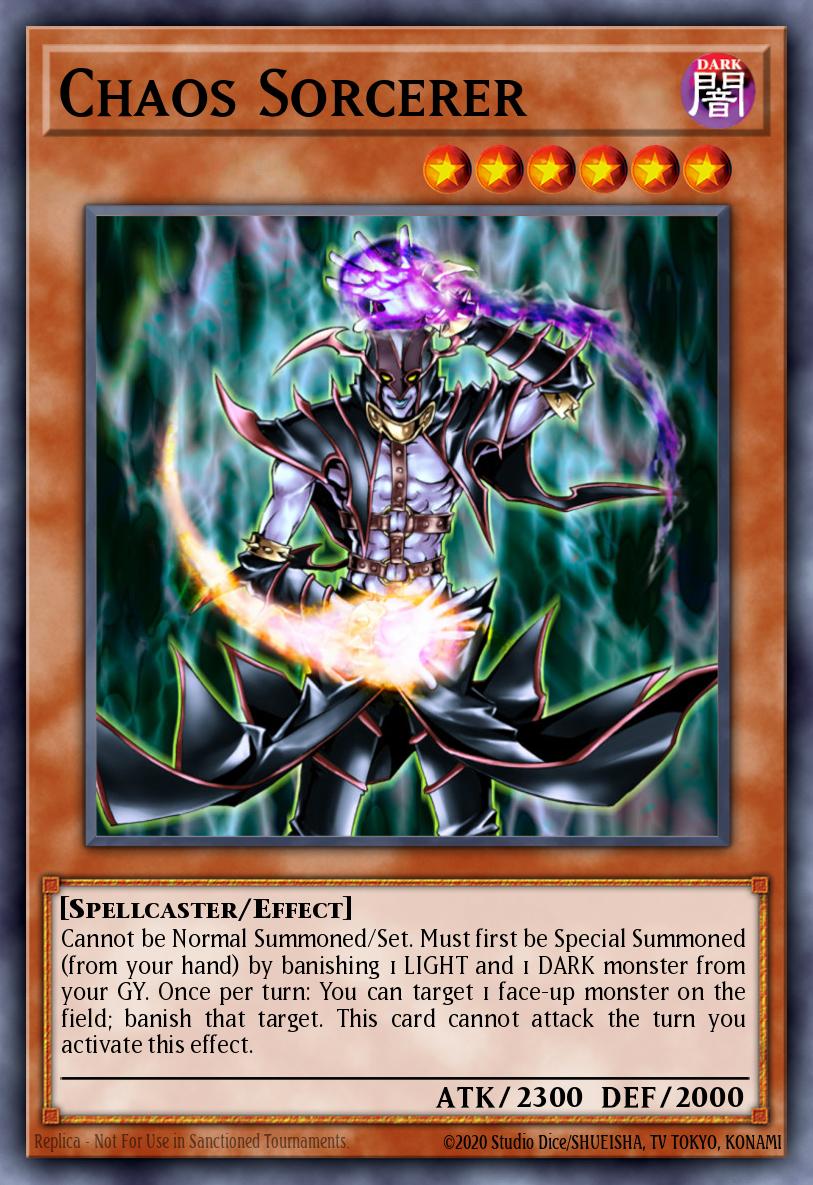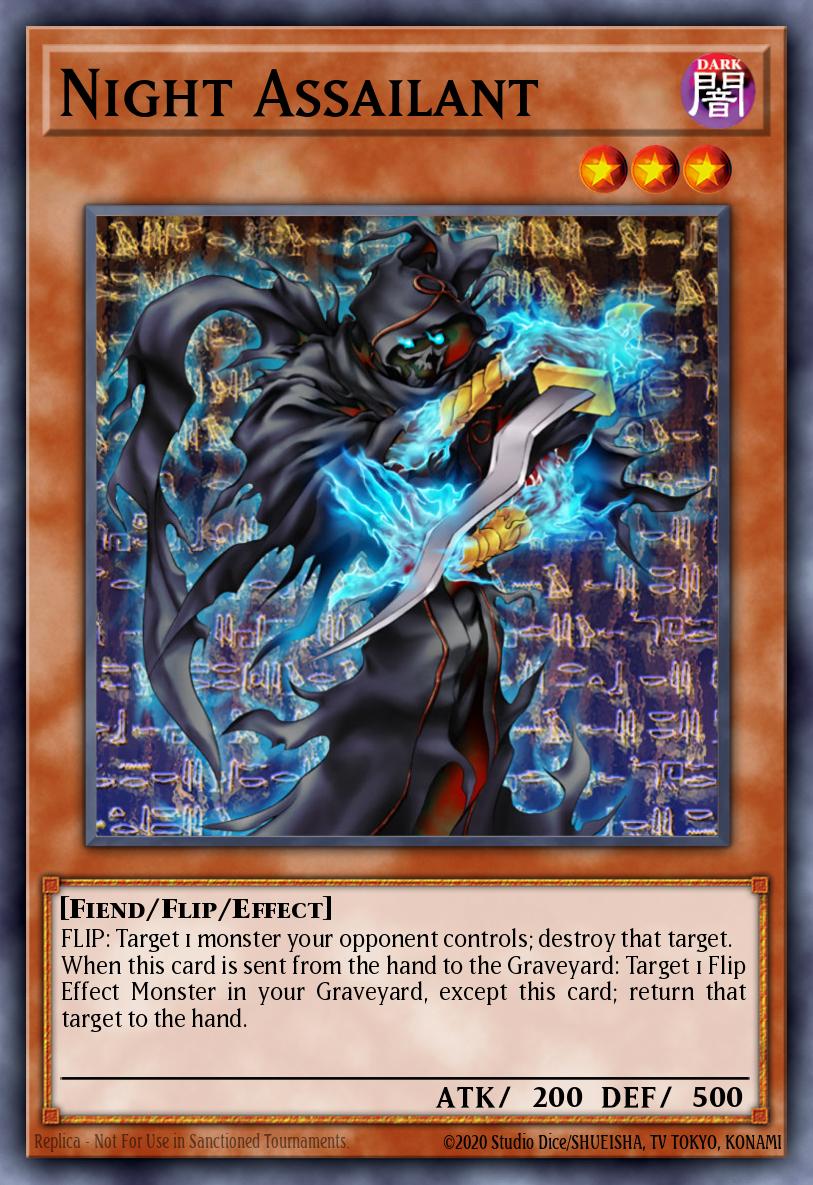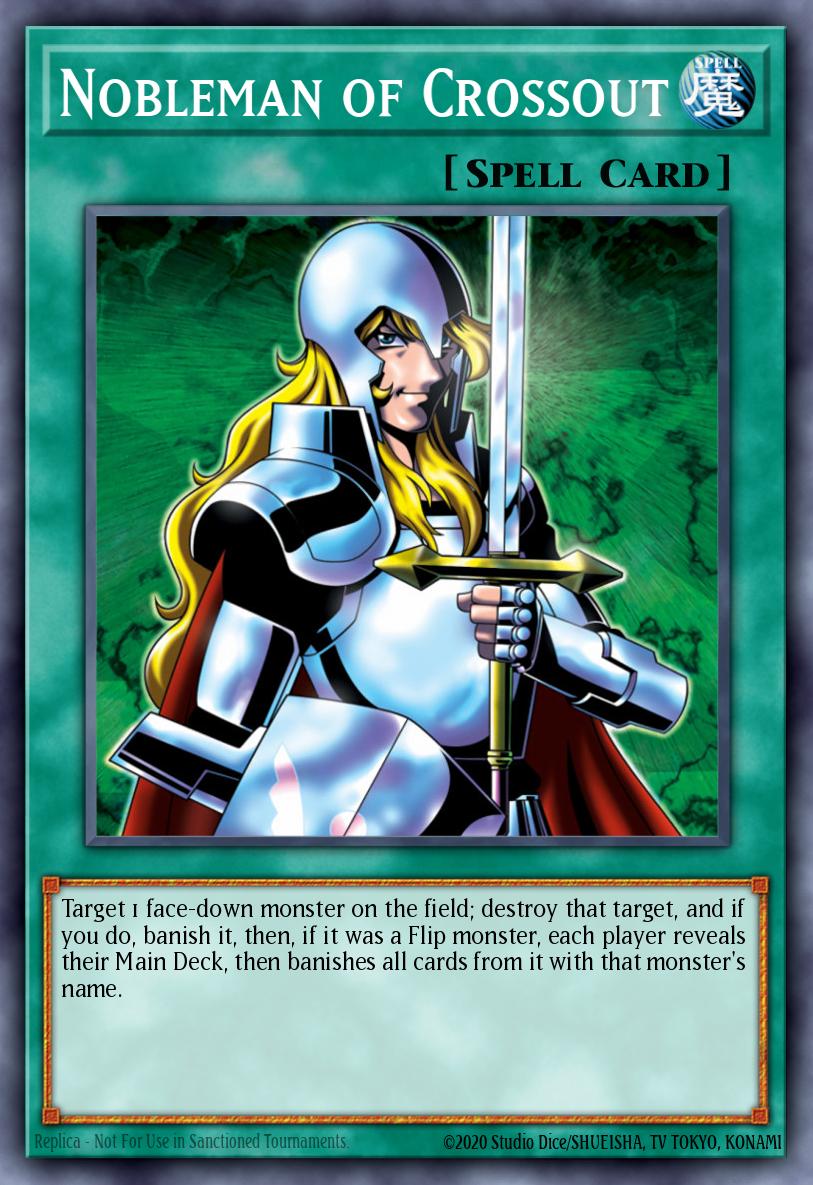Though Goat Control was perhaps the most-represented deck in the tournament, only one Goat Control player made it to Day 2. The Top 8 was dominated by Chaos decks, including two separate Chaos Turbo decks. Surprisingly, a Gearfried deck made it to the finals and played the only Goat Control deck to make Day 2.
This week, I want to go over those Goat Format Chaos Turbo decks and dissect them to see what makes them tick. Let's get started, shall we?
Introducing Goat Format Chaos Turbo
 Chaos Turbo relies heavily on Flip effects, Thunder Dragon, and the Trinity to gain advantage. It parallels Goat Control in that it seeks to maintain numerical advantage at all times, and is arguably better at it than Goat Control.
Chaos Turbo relies heavily on Flip effects, Thunder Dragon, and the Trinity to gain advantage. It parallels Goat Control in that it seeks to maintain numerical advantage at all times, and is arguably better at it than Goat Control.Most all Standard Chaos Turbo decks play Magician of Faith, Night Assailant, and Dark Mimic LV1. Sometimes it will tech a Magical Merchant or a few Gravekeeper's Spy. All of these cards can plus when flipped or go even by battle. This advantage gives the Chaos Turbo player a variety of ways to maintain a high card count. Throw in Thunder Dragon, which can fulfill your LIGHT monster requirements for Chaos Sorcerer, and the deck just gets better.
Scapegoat often is not seen in Chaos Turbo. Fireboy1944 played one copy of it in his FLC1 Top 8 build, but most of the time it's not necessary. This is because Chaos Turbo eschews Metamorphosis, relying instead on its flips and Chaos monsters as opposed to Thousand-Eyes Restrict.
In terms of Trap cards, both decks played discard Traps, with Raigeki Break being the g0-to. Discard Traps aren't seen much in Goat Format, but they work well in Chaos Turbo, as the deck runs both Thunder Dragon and Night Assailant. This allows the Turbo player to use both as free discards, turning what is usually a -1 into a break-even play.
Advantages of Chaos Turbo
 One of the deck's biggest advantages is the fact that it can manage its resources as well as, if not better than, Goat Control. With the sheer number of break-even monsters the deck runs, as well as its ability to play discard Traps, Chaos Turbo seeks to keep the gamestate simple and the hand count high.
One of the deck's biggest advantages is the fact that it can manage its resources as well as, if not better than, Goat Control. With the sheer number of break-even monsters the deck runs, as well as its ability to play discard Traps, Chaos Turbo seeks to keep the gamestate simple and the hand count high.Another major strength is the fact that Chaos Turbo weakens the opponent's Delinquent Duo while also strengthening its own Trinity plays. Thunder Dragon and Night Assailant are the go-to Graceful Charity discards, as they are basically free. They also work well with Card Destruction, which is often seen in Chaos Turbo.
More importantly, Thunder Dragon puts 2-3 LIGHT monsters in the Graveyard, fulfilling half of the deck's Chaos requirements in a single play. Night Assailant can recycle Flip effects, and discarding two copies off of Graceful Charity allows one to bring both copies back to hand, essentially making Charity free.
The biggest advantage of Goat Format Chaos Turbo is simply the fact that it can turbo out Chaos Sorcerer. The deck is built to be able to play it whenever it needs to, and most decks do not have easy outs to a well-played Sorcerer. Continual advantage generation, coupled with the constant threat of pressure, can seal many a game for the Chaos Turbo player. Considering two players made Top 8 at FLC1 with it, it's safe to say it's one of the more powerful decks of the format.
Disadvantages of Chaos Turbo
 However, Chaos Turbo is not without its weaknesses. In the early game, it can be difficult to establish board control, especially if a Flip monster gets lost to a Nobleman of Crossout. The deck has a hard time combating cards such as Mystic Swordsman LV2, Blade Knight, and opposing Flip monsters. It also has a hard time outing a Tsukuyomi lock, which can force the Chaos Turbo player to make suboptimal plays in order to maintain field presence.
However, Chaos Turbo is not without its weaknesses. In the early game, it can be difficult to establish board control, especially if a Flip monster gets lost to a Nobleman of Crossout. The deck has a hard time combating cards such as Mystic Swordsman LV2, Blade Knight, and opposing Flip monsters. It also has a hard time outing a Tsukuyomi lock, which can force the Chaos Turbo player to make suboptimal plays in order to maintain field presence.The deck also has the ability to burn itself out quickly. This is because it's fairly linear in what it does; it swaps versatility for power, which can backfire if resources are not used correctly.
It is also not very aggressive, at least at the start. Despite being a "turbo" deck, Chaos Turbo relies heavily on Flip monsters. this tends to result in a slow early game. The deck also usually does not run a lot of aggressive four-star monsters. Some will use Abyss Soldier, or Asura Priest, but otherwise the aggression mostly comes in the form of defensive pressure and the Chaos monsters themselves. As such, careful play and resource management is key to winning with Chaos Turbo.
Playing Against Chaos Turbo
Chaos Turbo plays a lot like other Chaos decks of Goat Format, but it's definitely trickier. Important to note is the fact that it can dig itself out of a hole if it's able to maintain Flip monsters on board. As such, playing against Chaos Turbo requires timing, patience, and good resource management in order to win.
The problem with playing against any Chaos deck is its ability to drop big monsters out of seemingly nowhere. Whether it's Chaos Control, Chaos Turbo, or something else, you have to prepare yourself for big swings in momentum. This requires solid reads and anticipating plays. Keeping yourself protected and playing the numbers game is a good way to play against Chaos Turbo. However, you also have to be able to read when their position is weak and look to exploit that.
Really, it takes practice to win against Chaos Turbo. As one of the better Chaos-oriented decks, it's built to combat Goat Control reliably. A good Chaos player will beat a mediocre Goat Control player most of the time. This is also one of the draws of the deck - it's less punishing of misplays. This is because the deck has the ability to swing the game on damage as soon as the graveyard is setup.
Conclusion
Chaos Turbo is a deck that has made some serious waves in Goat Format recently. And by the looks of things, it's not going away any time soon. As such, it's important to not only understand the deck, but know how to play it, how to counter it, and how to beat it. This comes from playing both with and against the deck.
That’s it for this time. As always, you can contact me any time at [email protected]. You can also find me in the YGOPRODeck Discord Server. And make sure to read about the latest Yu-Gi-Oh! news, strategies, decks, and more, right here on YGOPRODeck.com.




